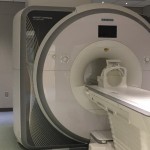Dr. Theodore has received a 3-year grant from the NIH NIDCD to examine phonetic category structure in individuals with and without specific language impairment (LI). Specific language impairment (LI) is a common child learning disorder that can persist into adulthood and puts individuals at risk for other disabilities including learning disability, reading disability, and failure to thrive in academic environments. The proposed research will use fMRI neuroimaging and behavioral methods to compare phonetic category structure in individuals with and without LI with respect to (1) how phonetic category structure is represented in the brain and (2) how phonetic category structure is dynamically modified as a consequence of exposure to phonetic variation. These findings will result in improved specification of the etiology of LI, which can be used to develop more targeted rehabilitation protocols. The title of the grant is “Determinants of phonetic category structure in language impairment.”
Divya Ganugapati receives SHARE award
 Divya has received a competitive SHARE award from the UConn Office for Undergraduate Research. This award will provide a stipend for Divya to work in the SLaP Lab for the Spring 2017 semester. Divya’s project is titled “Pesos and ponies: Neural representation of phonetic category structure in Spanish-English bilinguals.” Congratulations!
Divya has received a competitive SHARE award from the UConn Office for Undergraduate Research. This award will provide a stipend for Divya to work in the SLaP Lab for the Spring 2017 semester. Divya’s project is titled “Pesos and ponies: Neural representation of phonetic category structure in Spanish-English bilinguals.” Congratulations!
Paper accepted at Brain and Language
Be on the lookout for a new paper to appear in Brain and Language. The title is “Voice-sensitive brain networks encode talker-specific phonetic detail.” This work was completed in collaboration with Dr. Emily B. Myers at the University of Connecticut.
Paper accepted at Journal of the Acoustical Society of America
Be on the lookout for a new paper to appear in JASA Express Letters! The title is “Lexically guided perceptual tuning of internal phonetic category structure.” This work was Julia’s first project in the SLaP Lab and is now her first publication. Congratulations, Julia!
Paper accepted at Brain and Language
Be on the lookout for a new paper to appear in Brain and Language. The title is “Reading ability reflects individual differences in auditory brainstem function, even into adulthood.” This work was completed in collaboration with Dr. Erika Skoe and Ms. Lisa Brody at the University of Connecticut.
Paper accepted at JEP:HPP
Be on the lookout for a new paper to appear in Journal of Experimental Psychology: Human Perception & Performance. The title is “More than a boundary shift: Perceptual adaptation to foreign-accent speech reshapes the internal structure of phonetic categories.” This work was completed in collaboration with Dr. Xin Xie and Dr. Emily B. Myers at UConn. Congrats, Xin!
Research Intensive Summer Experience
We’re currently recruiting undergraduate students to participate in the 2016 RISE program in the SLaP Lab. You can learn more about the program, here! Interested students should complete the inquiry form by March 1, 2016.
Julia Drouin receives IBACS Fellowship
Julia Drouin, a Ph.D. student in the SLaP Lab, has received a summer fellowship from the Connecticut Institute for the Brain and Cognitive Sciences. She will be in residence at the Institute this summer engaged in advanced training in grantsmanship, culminating in the preparation of an NIH F31 application. Her research proposal examines the neural and behavioral time-course of nonnative sound contrast learning in adults, focusing on plasticity of auditory encoding (using ABR methods) and changes to cortical processing (using MRI methods). Congratulations, Julia!
Jacqueline Ose receives SHARE award
 Jackie has received a competitive SHARE award from the UConn Office for Undergraduate Research. This award will provide a stipend for Jackie to work in the SLaP Lab for the Spring 2016 semester. Jackie’s project is titled “Effect of attention on lexically-informed perceptual learning.” Congratulations!
Jackie has received a competitive SHARE award from the UConn Office for Undergraduate Research. This award will provide a stipend for Jackie to work in the SLaP Lab for the Spring 2016 semester. Jackie’s project is titled “Effect of attention on lexically-informed perceptual learning.” Congratulations!
Dr. Theodore receives BIRC Seed Grant
 The SLaP Lab has received a seed grant from UConn’s new Brain Imaging Research Institute. This award will provide 20 hours of scanning time on the shiniest new toy in our building! The goal of the proposed study is to test the hypothesis that individuals with language impairment (LI) may not have the perceptual flexibility that supports dynamic adaptation in speech perception. We will use MRI methods to test this hypothesis with respect to the neural representation of phonetic category structure. Ph.D. student Julia Drouin is a collaborator on this project.
The SLaP Lab has received a seed grant from UConn’s new Brain Imaging Research Institute. This award will provide 20 hours of scanning time on the shiniest new toy in our building! The goal of the proposed study is to test the hypothesis that individuals with language impairment (LI) may not have the perceptual flexibility that supports dynamic adaptation in speech perception. We will use MRI methods to test this hypothesis with respect to the neural representation of phonetic category structure. Ph.D. student Julia Drouin is a collaborator on this project.
Photo credit: birc.uconn.edu